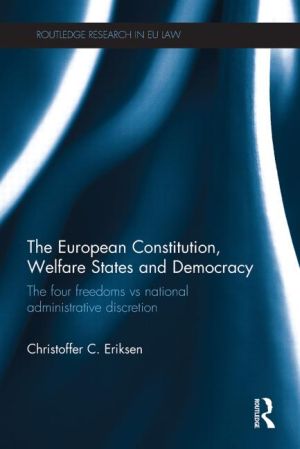
This book explores how the right to free movement of goods, persons, services and capital in the European Union legal order affects the nation-states and the peoples of Europe. The four freedoms, as they are known, are vital for the construction and protection of the European market without internal frontiers. As such the four freedoms have been recognized as elements of a European constitutional order, which may challenge the autonomy of national constitutions and parliaments. But how do the four freedoms affect the autonomy of national governments and administrative authorities? Can the effects of the rights to free movement on national governments and administrative authorities provide new insights into how the European Union legal order affects nation-states and the peoples of Europe?
This book explores the relations and conflicts between the European constitution and the legal regulation of mixed economies and markets within welfare-states. In particular it looks at the discretionary powers enjoyed by national governments and administrative authorities, which have been used by welfare states to provide opportunities to include affected interests, experts, and users in public decision-making, and thereby fulfil democratic ideals such as inclusion and deliberation in complex and differentiated societies. The book analyses a series of judgments from the European Court of Justice which indicate that the four freedoms may be incompatible with the practice of entrusting national authorities with discretionary powers, and shows how this creates a democratic dilemma for welfare states.